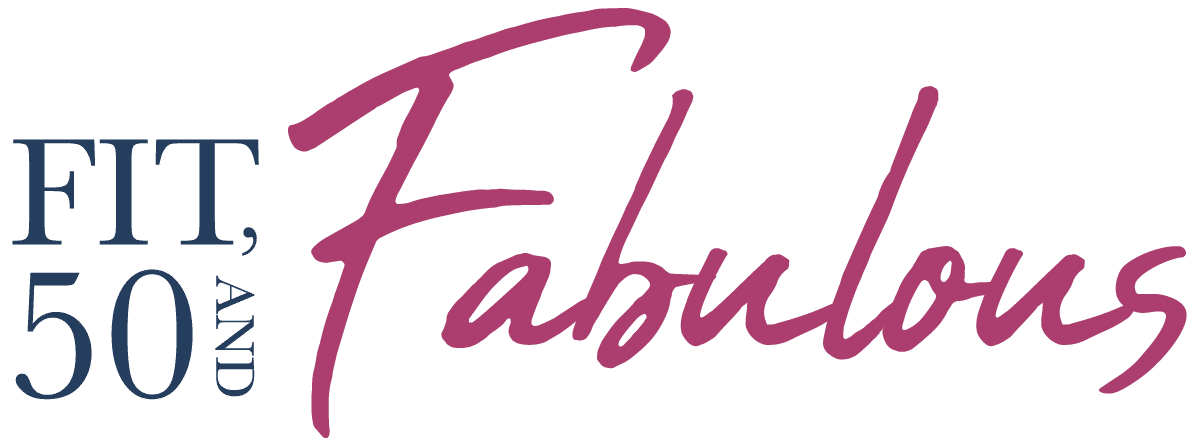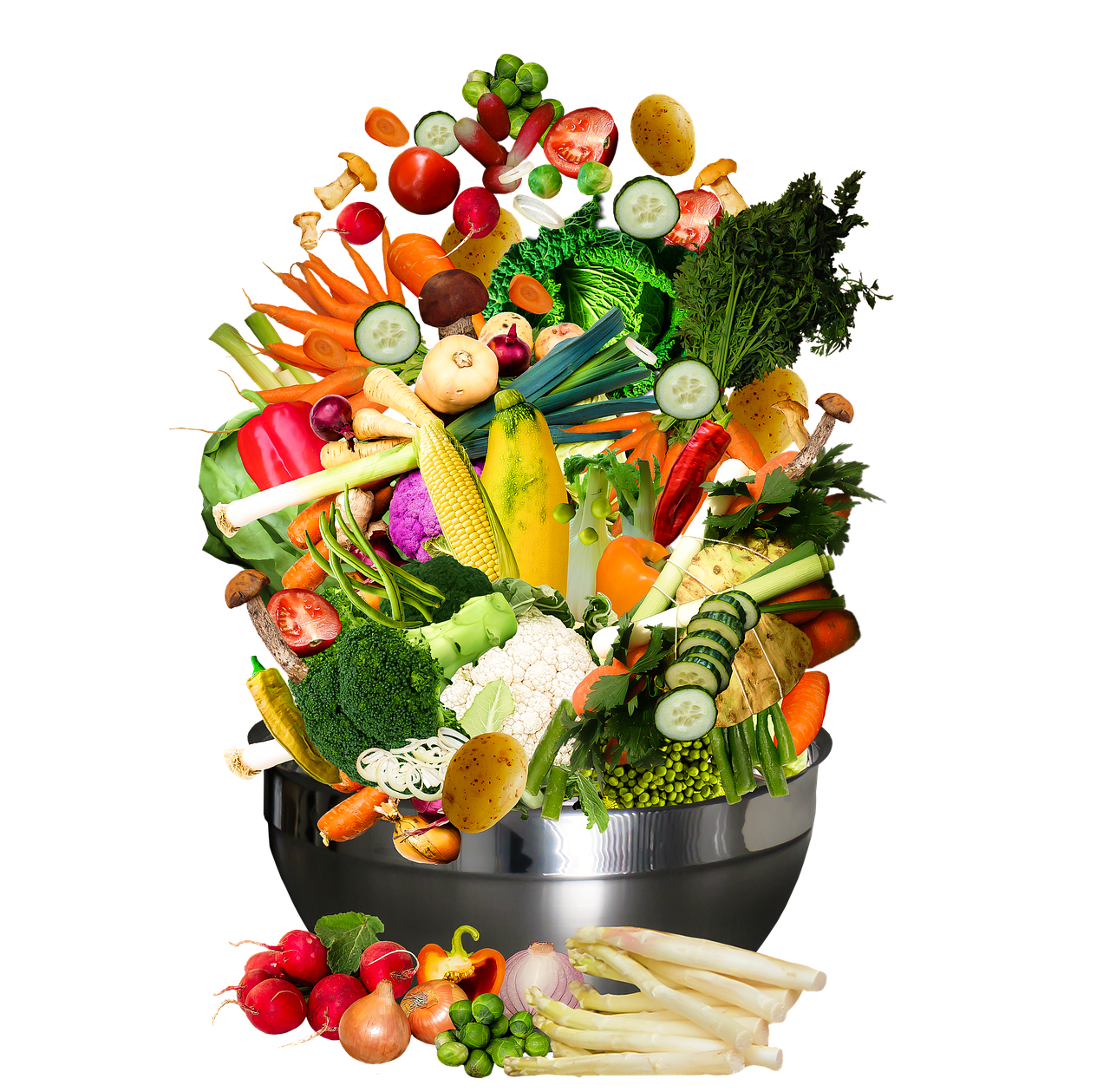Good nutrition is more than eating to slim down or look good. Good nutrition is essential for cellular metabolism and, as it turns out, is a vital component of any post-surgical or post-injury trauma.
This is something I’m learning as I continue my recovery from my recent surgical procedure. To catch up, I’m 6 days post-op for a procedure to repair my torn ACL and meniscus. By all accounts, the surgery went quite well. Surgeons used a cadaver graft to repair my torn ACL. My torn meniscus, which was worse than initially thought, was trimmed. I’m home convalescing with a surprisingly minimum amount of pain.
Post-Op Instructions
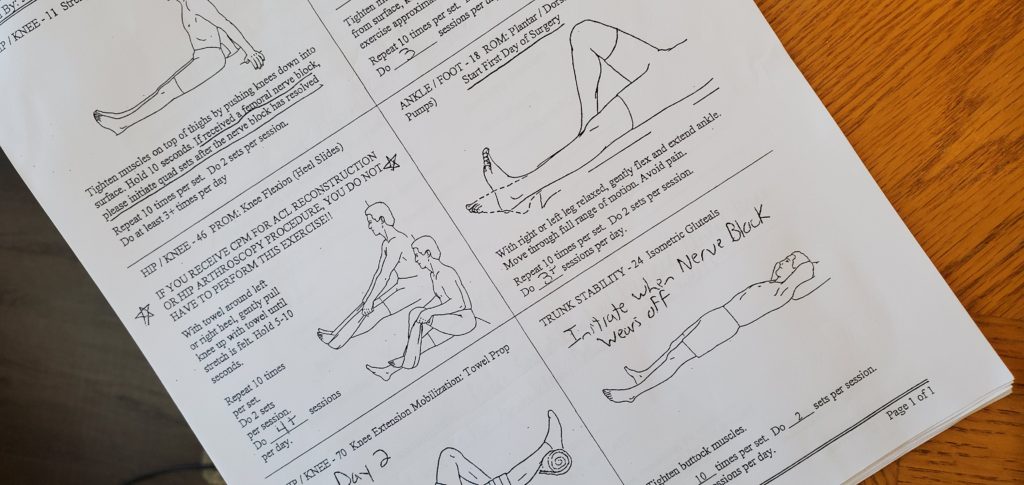
My post-op instructions include wearing a brace that keeps my leg fully extended at all times. I have a list of isometric exercises to do 3x per day. Added to that is a total of 6 hours daily on a continuous passive movement or CPM machine. Plus, regular icing and elevation of the knee to reduce swelling. I’m to begin physical therapy seven days post-op and continue that for six weeks.
In between my CPM sessions and isometric exercises, I hobble around on crutches as much as I can to do the basics; clean out the kitchen sink, load the dishwasher, clean the stove, tidy up, feed the animals, grab something to eat or drink. It’s tiring and for a few days, it was all I could do to prepare a bowl of cold cereal for breakfast.
That got me thinking about what my nutrition should look like following surgery. While the doctor sent me home with all kinds of instructions to get my strength and mobility back, there was nothing about what my nutrition should look like. Not surprising, since doctors know little to nothing about nutrition.
Post-Op Nutritional Needs
I dug around a bit and discovered that proper nutrition is just as critical to my recovery as all of the prescribed physical therapy. The science behind good nutrition and its impact on our bodies can’t be ignored.
In fact, when your body has undergone trauma, even if it’s the controlled trauma of surgery, getting proper nutrition to feed your cells so your body can repair itself is paramount.
Surgery, like any injury, elicits a metabolic stress response in the body. This means that your body breaks down existing resources of glycogen, fat, and protein into energy and redirects them towards healing the injury or trauma.
The problem is we regularly use these stores to maintain the body’s normal function. Without refilling or refueling our bodies of these nutrient stores through proper post-surgical nutrition, we jeopardize our overall recovery.
Think about it this way: your regular diet deposits a certain amount of nutrients into your energy stores. When your body is recovering from injury or trauma, it’s needing your regular energy stores plus an amount over and above to support recovery and rehabilitation. If you don’t make additional nutritional deposits, you end up in a nutrient deficit.
All of this indicates that good nutrition will play a vital role in my overall recovery. Here’s what I need to pay attention to.
Protein Consumption for Muscle Growth
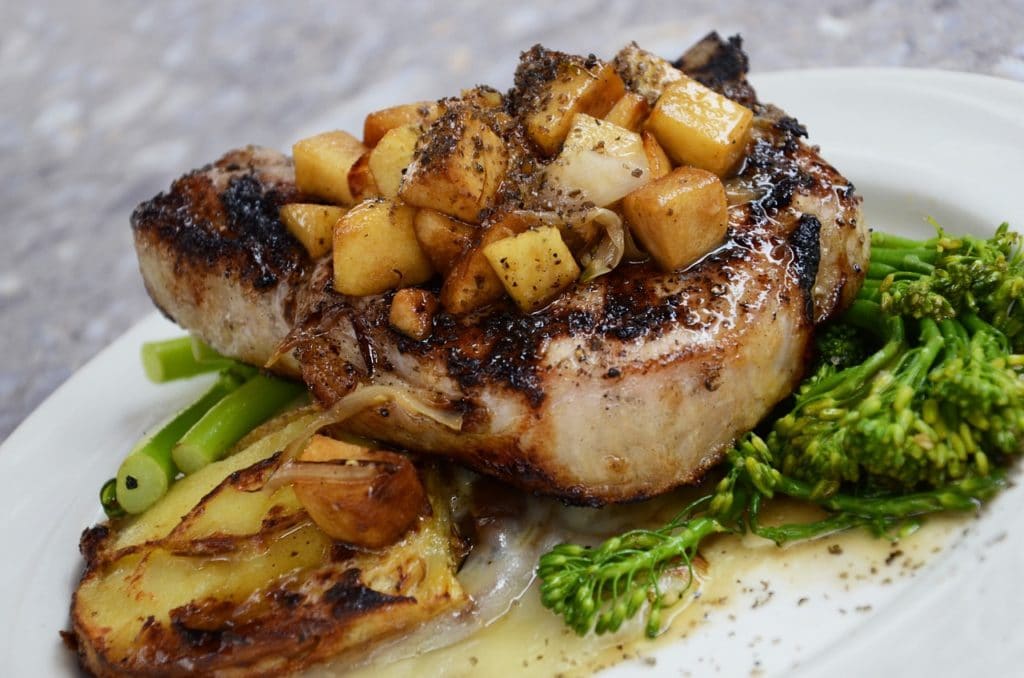
Protein is built and broken down within our cells on a constant basis. We become protein deficient when we don’t get enough protein to support this process. When that happens, there are substantial consequences for our overall health. This includes our ability to recover from injury.
We know already know that protein consumption is necessary to support the growth and regeneration of muscle tissue. This becomes even more important if you’re like me and over the age of 50. Remember, beginning at age 30, we start to lose 3-8% of our muscle mass per decade in a process called sarcopenia. We need a regular diet of protein-rich foods and strength training to reduce the impacts of this process.
In orthopedic surgery rehabilitation, the entire goal is to regain muscle, promote bone health, and increase mobility. Without sufficient protein intake and protein stores to support the body’s injury response to the surgical trauma and subsequent rehabilitation, rehabilitation can take much longer.
Exercise and physical therapy aside, a critical component of my overall success will also be paying attention to my nutrition and getting enough protein in my diet. Lucky for me there is lots of Thanksgiving turkey still left over. If you’re looking for a quick guide on other high-protein foods, you can download this list I created.
Vitamin C for Collagen Production
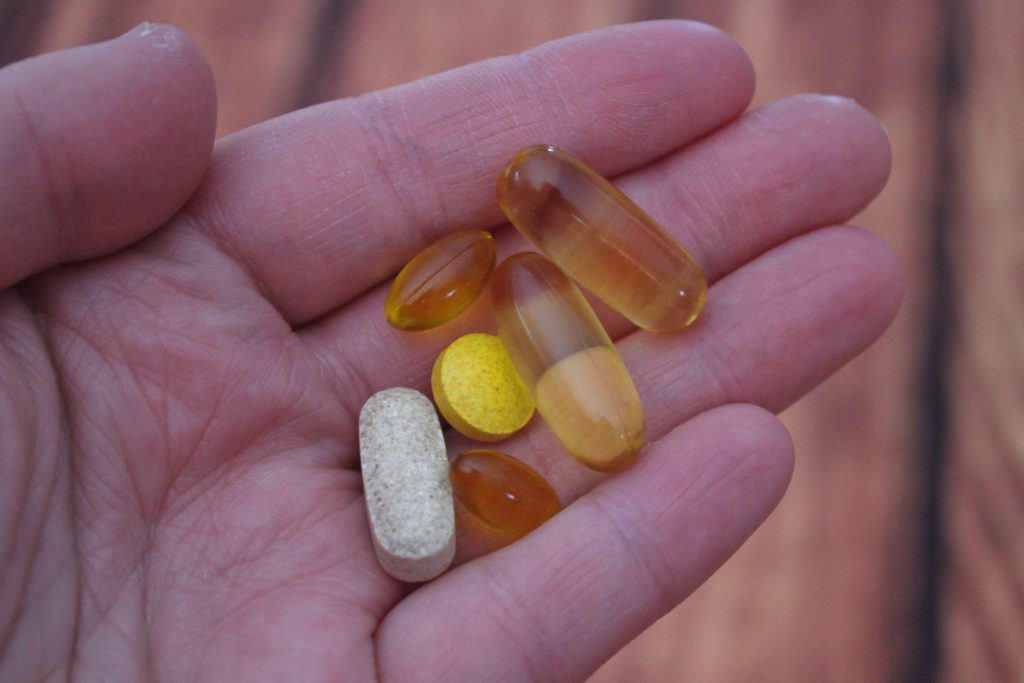
Vitamin C is a vital component in post-surgical recovery. We herald Vitamin C for its support to our immune system. However, Vitamin C also makes a specific type of protein called collagen.
Collagen, aside from making your hair, skin, and nails look healthy, also repairs your connective tissue, specifically your ligaments and tendons. It’s also key in healing surgical incisions.
Excellent dietary sources of Vitamin C include citrus fruits, strawberries, kiwi, baked potatoes, broccoli, and bell peppers. For me, I’ll be going for the baked potato and the broccoli.
Vitamin D for Bone Heeling
The National Institutes of Health recommend that children of age 1 up to adults of age 70 should consume about 600UI of Vitamin D per day. Achieving this level of Vitamin D through diet alone isn’t possible and supplements are recommended.
Vitamin D deficiency is linked to a number of health issues, including osteoporosis. Knowing that Vitamin D supports bone healing and calcium absorption, ensuring a diet of foods rich in Vitamin D, such as fortified milk, butter, cereals, liver, fatty fish like tuna and salmon, and eggs is important in post-surgical recovery.
I have a glass of milk every night with my vitamins and supplements (which includes Vitamin D). I’ve got the eggs covered under breakfast. I’m a big fan of tuna on rye toast, so I think I’ve got some of the nutritional requirements for Vitamin D addressed.
Calcium for Bone Healing
Calcium and Vitamin D go hand in hand. Vitamin D supports the absorption of calcium by the body. It also helps to build bone and supports muscle contraction. Dairy products are good sources of calcium, but they’re not the only ones. You’ll find calcium in foods like mustard greens, kale, broccoli, collard greens, and almonds.
That broccoli is going to be doing triple duty for me! It’ll give me protein, Vitamin C and calcium! For the rest, that’s where my yogurt and nightly glass of milk will help too.
Post-Op Foods to Avoid
In addition to foods that should be included in a diet that promotes healing, there are foods to avoid as well.
Sugar
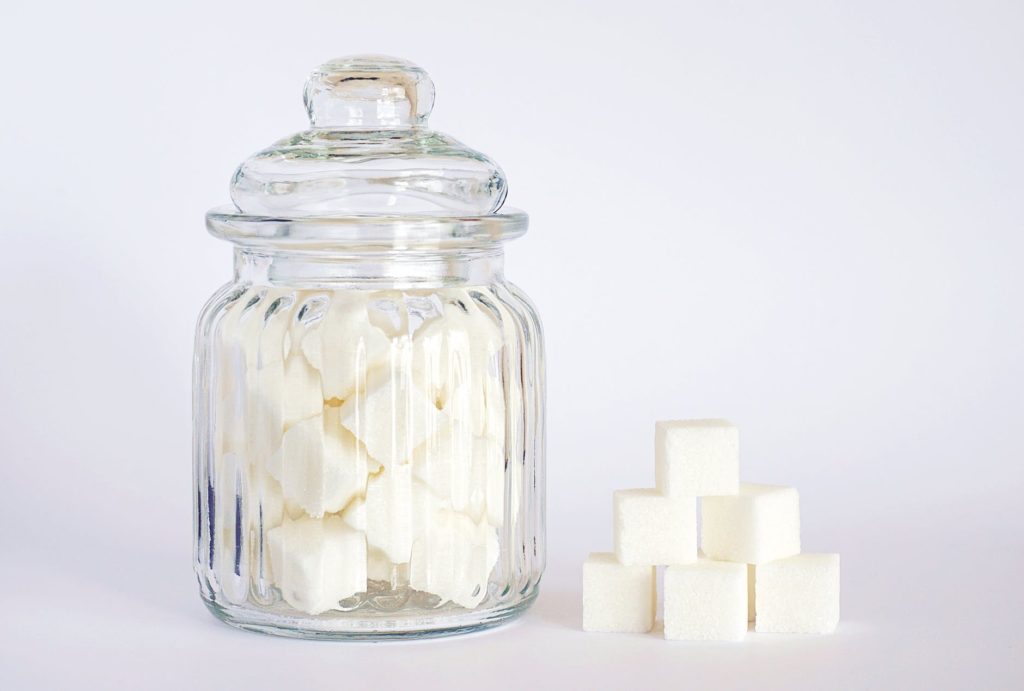
Think about it; sugar contributes to inflammation. Whether as a result of injury, trauma, or surgery, your body’s response is swelling – or inflammation. This is a natural and needed response and the first step towards healing.
However, excessive sugar consumption results in a prolonged inflammatory response. When this happens, it impacts our metabolism and structurally alters our cells, interfering with their normal function. This means any recovery from injury, trauma or surgery is already starting at a disadvantage. Structurally altered cells are malformed and cannot adequately support an active recovery.
Processed Foods
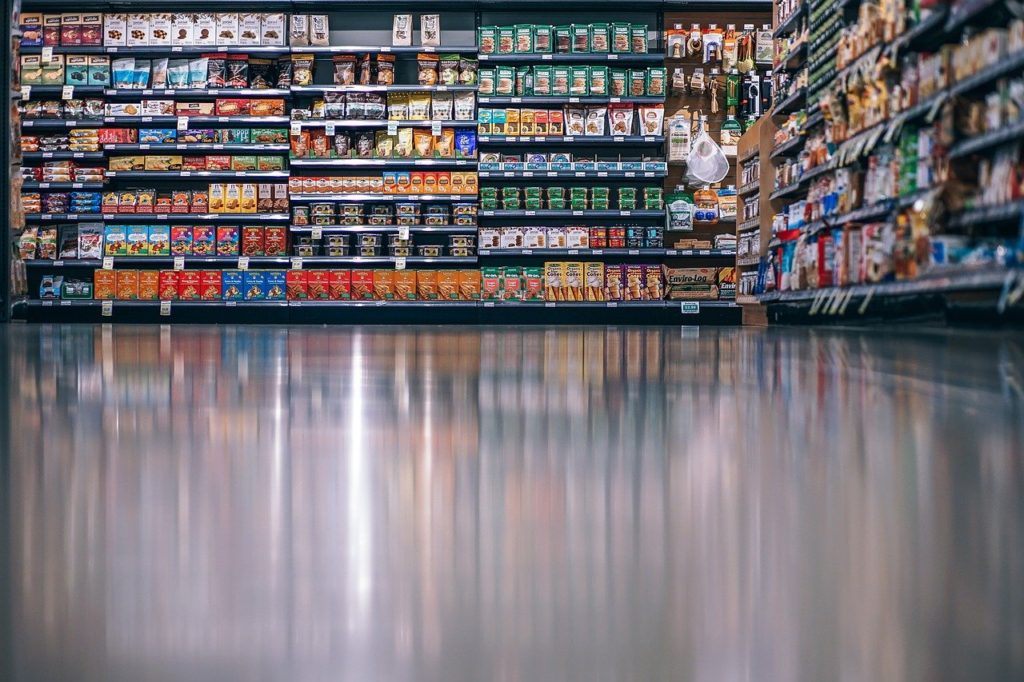
Let’s break this down. Injury, surgery, or trauma affects our tissues. These tissues can be the ones we see, like the skin that covers our body, on the ones we don’t see, like our connective tissues. My ACL and meniscal surgery required an incision through the skin to reach the ligaments that needed repair and replacement.
Tissues are made up of cells. Cells need proper nutrients from the foods we eat to produce the energy and proteins we need to function optimally. Within our cells are various organelles that each play a role in processing the nutrients we eat. When we eat processed foods, our cells need to do double the work to clean up and weed out the ‘trash’, or the nutrients that don’t adequately support energy and protein production and transport to our organs.
Your skin and your skeletal system are indeed organ systems, and they deserve all the support they can get from good nutrition so they can heal properly.
Final Words
Keeping my nutrition in check will not only be important to my overall recovery but also keep my weight in check.
My daily exercise routine is effectively gone for the next several months. While it’s true that exercise alone will never help me lose weight, it’s a big part of my daily routine that sets the tone for the day and promotes the need and desire to fuel myself appropriately.
With that gone, I still need to maintain that foundation of a good diet. Only now a good diet is more important than ever to support my physical health and my ability to recover quickly from reconstructive knee surgery.
